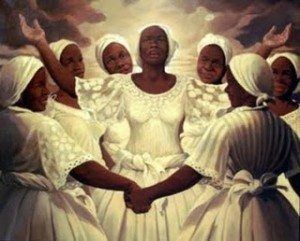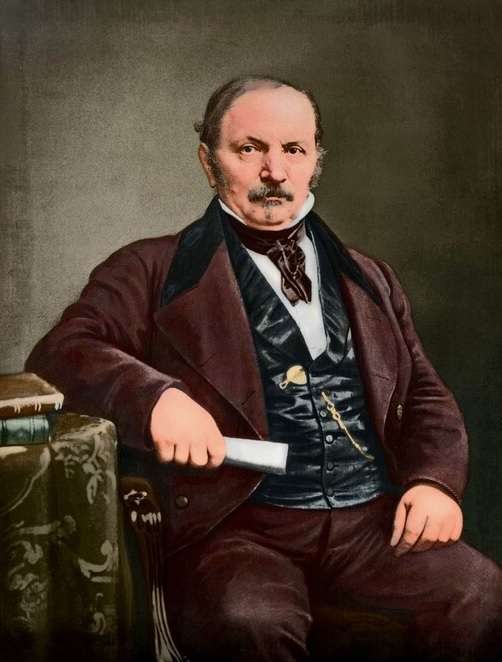What is UMBANDA
Umbanda is a neo-spiritual movement that takes heavy inspiration from African religious cults. The term “Umbanda” itself stems from Bantu languages, from which it can be roughly translated into “the art of healing”. Same as with most other afro-latin religions (Santería, Candomblé, Macumba), it’s roots can be traced to spiritual practices of western and central Africa (the worship of orixás) which were brought to South America and the Caribbean by black slaves that were made to work on sugar and tobacco plantations in the midst of 16. – 19. century. Among other streams, Umbanda’s teachings are also influenced by European spiritualism, esotericism and Christianity. Thanks to the drawing from different traditions and cultures, it can be almost surprising to us how many familiar spiritual western influences are simultaneously present in Umbanda. The more a person gets to know this practice, the more they can identify traditions that are familiar to them in their own culture. Even those elements that we don’t know appear very natural and understandable to our deepest archetypal understanding.

Umbanda was supposed to be established in 1908 by an eighteen year old spiritualist, Zélie de Moraes, who suffered from a powerful illness (paralysis), during which – in Rio de Janeiro – ghosts and spirits appeared to him. Later he received a message from the spirit of a Jesuit priest and the chief of a native tribe called The Seven Intersections (Caboclo das Sete Encruzilhadas). The message maintained that he should establish a new religion, which would be the belief of all present-day Brazilians no matter the race or social class. Up until that time, within spiritual seances people worked with helpful spirits, but even then there was major stigma and discrimination against the spirits of the native tribal Brazilians or spirits of the black slaves. They were viewed as lesser because of their race and primitive way of speech. That is why in Umbanda we encounter these spiritual beings from the traditions of former natives, brought slaves but also white colonisers.
But Umbanda is not only a black religion like for example Candomblé, since it no longer actively interacts with African cultures. Umbanda is something typical for Brazil, where it combines and blends many different traditions together. One of the other significant pillars is spiritism (Espiritismo), which spread through Brazil by salons scholars during the 1950’s and from them into the minds of the general public.
The direct founder of spiritism was a French gentleman called Hippotyle Rival, who wrote his publications about spiritism under the name of Alan Kardec. According to him the material and immaterial worlds were created from one former energy that slowly grew and split itself into every which form and created multiple possibilities and realms. These realism are – even if it doesn’t seem like it – connected by the universal laws (for example sympathy, karma, mercy etc.), which exist for every one of their beings and they are aware of such laws to an extent which equals their spiritual development.
All of these spirits are formally created equal, blessed with intellect and free will. According to the achieved level of their spiritual realisation Kardec divides people into three groups of spirits; the pure spirits which have wholly liberated themselves of the supremacy of matter, the good spirits who have achieved realisation to such an extent that they consist more of the spirit than the natter, and imperfect spirits which are ruled more by matter than the spirit. Evil is, according to Kardec, caused by mere ignorance, but it doesn’t exist by itself. Everyone develops according to the principle of karma, thanks to which they can best experience the consequences of their actions.

Alan Kardec then also promised his teaching and help to confused souls (incarnated and not incarnated) on their journey of spiritual realisation. And Umbanda has just the same goal – help everyone, no matter where they come from, in their spiritual rise. Another important component in Umbanda is the work with guides (guias), which represent the pure spirits, who through mediums here on Earth bring healing and assistance to our realisation.
